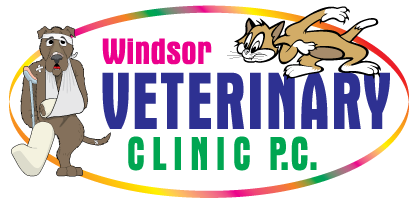Illustrated Articles
-
The most common cause of hip dislocation is blunt force trauma such as a fall or an automobile injury. Most dogs with a hip dislocation will have severe hind limb lameness and pain and may not be able to put any weight on the affected limb. A diagnostic radiograph will show the direction of dislocation and whether a fracture of any part of the hip joint has occurred. In many cases, it is possible to replace the femoral head in the acetabulum by manipulation under general anesthesia. If the femoral head has been successfully replaced and the correct post-operative treatment has been adhered to, it is unlikely that the hip will dislocate again.
-
Hip dysplasia is a deformity of the hip that occurs during growth. The result is laxity of the joint, followed by degenerative joint disease (DJD) or osteoarthritis (OA), which is the body's attempt to stabilize the loose hip joint. Hip dysplasia is a genetic disease that is affected by factors such as diet, environment, exercise, growth rate, muscle mass, and hormones. It is predominantly seen in larger dogs. Treatment depends upon the pet's clinical signs and amount of discomfort the pet is in.
-
Histoplasmosis is an infection caused by histoplasma, a fungus found in moist soils and especially prevalent around the Ohio, Mississippi, Missouri, and St. Lawrence rivers, as well as the southern Great Lakes and Alberta. Fungal spores are inhaled or ingested and cause infection in many sites including the lungs, gastrointestinal tract, eyes, joints, and spleen. This handout outlines signs, diagnosis, treatment, and prognosis. Histoplasmosis is transmissible to humans, especially if they are immunocompromised.
-
Urticaria, or hives, is a skin condition characterized by raised red skin welts caused by direct contact with a substance that causes an allergic reaction. These substances include insect bites, food, pollens, molds, vaccinations, and medications. If the swelling progresses to the throat, breathing can be compromised and result in a medical emergency called anaphylaxis. Injectable antihistamines and corticosteroids usually bring about a dramatic improvement, sometimes in as little as a few minutes.
-
There are many potential hazards that pets face during the holidays. With common sense and planning, exposure to these hazards can be avoided, preventing injury or illness. Hazards include tinsel, electrical cords, string from meat, ribbons, Christmas tree water, holiday plants, and foods such as chocolate and bread dough. Some dogs do better if given a safe space to stay, away from company, and may require calming remedies to help minimize anxiety and stress during the holidays.
-
The holidays add excitement to the winter months, but we cannot forget about indoor and outdoor toxins frequently seen at this time of year. Keeping your pets healthy and safe will help keep the holidays stress free.
-
A Holter monitor is a portable device used to continuously monitor the electrical activity of the heart and can be an effective and non-invasive way to help your veterinarian evaluate heart conditions, especially when trying to determine the cause of fainting episodes or evaluate treatment. Many dogs are not bothered by it and ignore its presence.
-
An increase in your pet's breathing rate while resting quietly or sleeping is an early clinical sign that your pet may be developing heart failure and needs to see your veterinarian. In general, all normal dogs and cats have a breathing rate of between 15-30 breaths per minute when they are resting. Resting breathing rates that are consistently greater than 30 breaths per minute are increased and considered abnormal.
-
Home renovation can be arduous for every member of the household. Awareness of possible construction site problems will help homeowners avoid pet-related issues. A little planning can make the renovation process run more smoothly everyone.
-
Taking care of a paralyzed pet comes with many challenges. This handout reviews the needs of a paralyzed pet and how an owner can help them at home.


